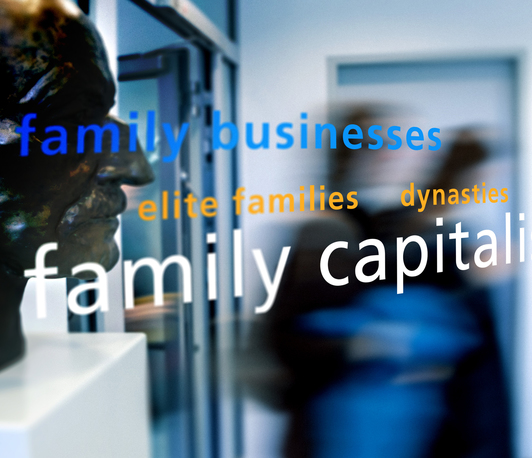Family Capital(ism) in the Twenty-First Century
Conference
- Start: May 16, 2023
- End: May 17, 2023

Recent research shows that families continue to play an essential role in late capitalism. They own large fortunes, control the majority of firms around the globe, transfer property rights to the next generation, participate in philanthropic ventures, and exercise influence in the political sphere. Nevertheless, researchers rarely refer to late capitalism as “family capitalism.” This concept describes the dominant influence of families on the capitalist mode of production and the economy, but it is mainly associated with premodern and early industrial societies. Modernization theory even argues for a decline in family influence and the rise of managers, and more recently asset managers, in late capitalism. As a consequence, the social sciences have set their focus elsewhere and only recently rediscovered the family as an essential unit of analysis.
In this conference we intend to revisit the concept of family capitalism and use it to discuss and connect recent research on family capital in the twenty-first century. We intend to bring together scholars from different disciplines and regions who work on capturing and assessing family capital. The goal of the conference is to reflect upon and assess the structures and cultures families use to achieve an influential position in contemporary capitalist societies. Key questions include: What are the historic formations of family capitalism? In what ways and why are owner families still dominant within the business population today? How do they structure their ownership and wealth? What strategies do families apply to transfer and protect their ownership and wealth? How useful are the concepts of elite and class to describe this influence of families on capitalism? And why are families as institutions successful at all in late capitalism?